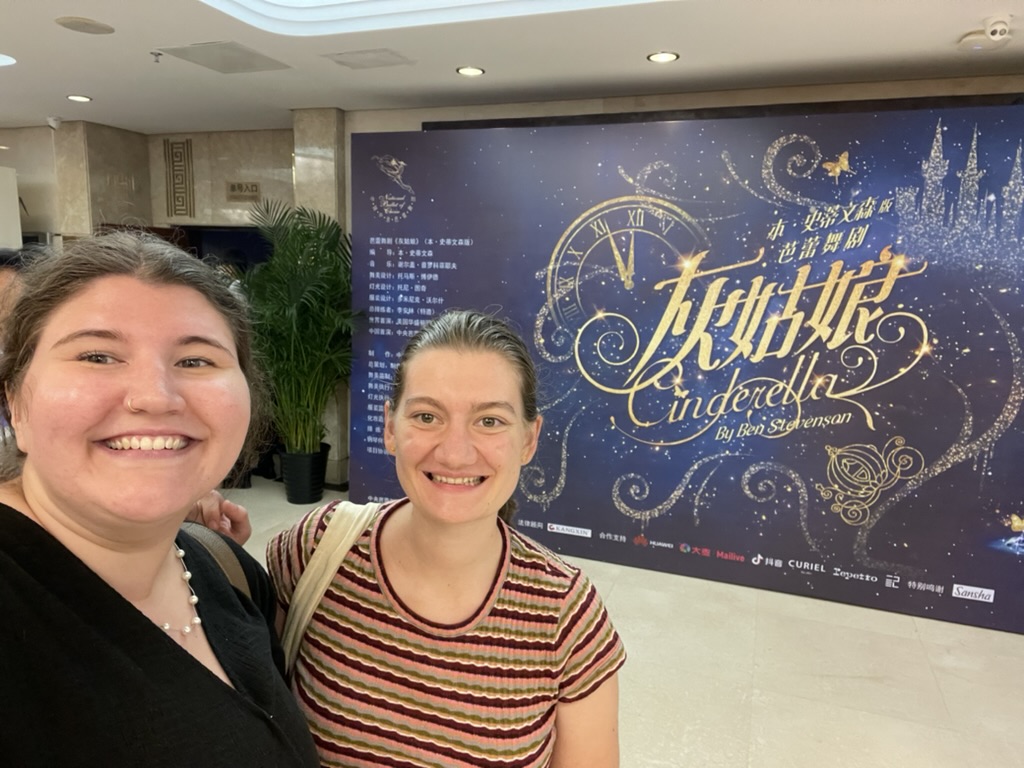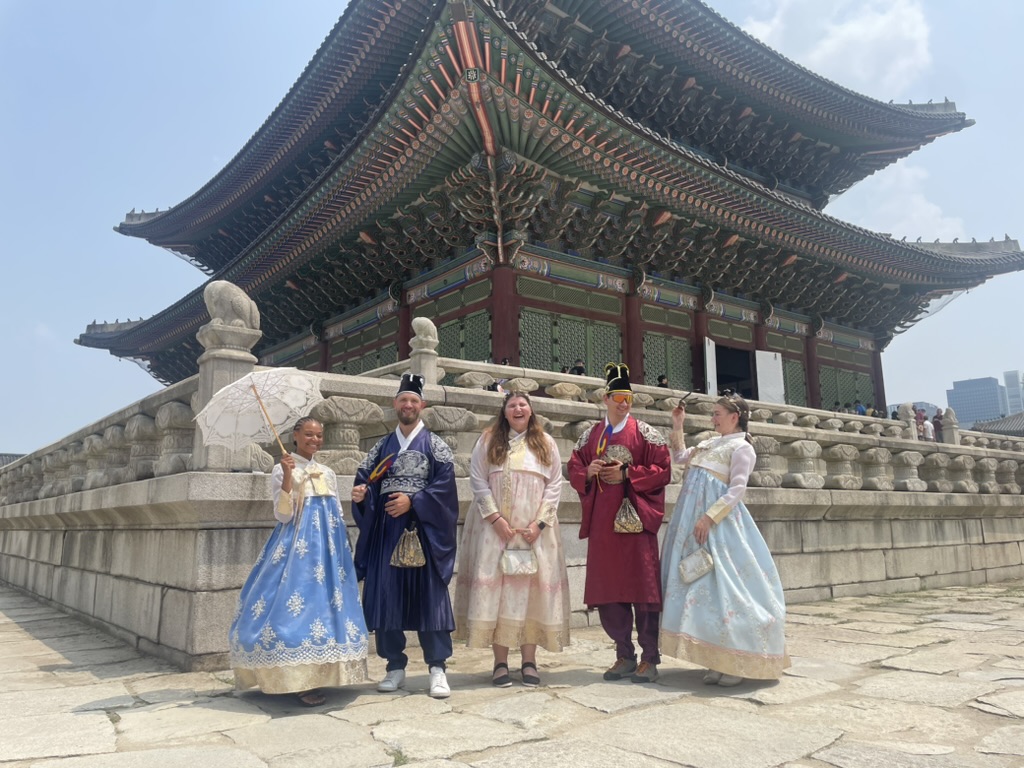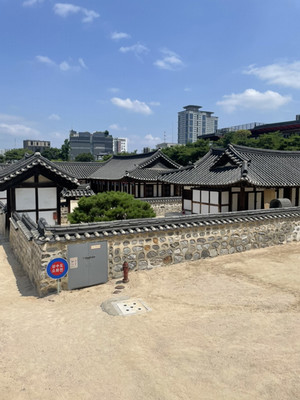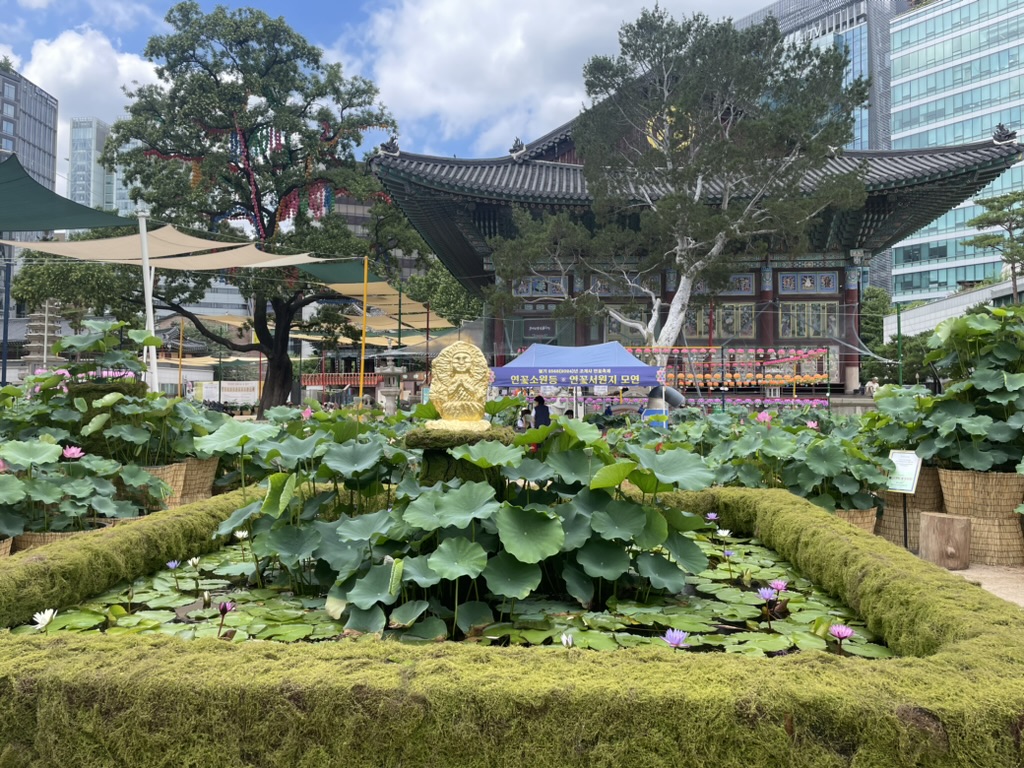Week Eight
It’s hard to believe yet another week has gone by here in Beijing, China, as my experience whittles down to a mere two weeks left. For most of the week, I continued my research into preparing a short speech on anti-bullying legislation in the United States. I also decided to take on the topic of the crime of adults harming children in their care. The attorneys here seemed most interested in the crime of teachers harming their students.
After discussing more of the topic with Siyu and Chen, we decided the video speech should cover how each state defines bullying, the procedures for identifying and handling school bullying, and potential punishments for bullies and/or the school. I included a brief mention at the beginning to specify that currently, no federal law addresses bullying in schools, however, there are protections in place for certain classes of people (race, national origin, sex, color, age, disability, or religion). At the end of the introductory paragraph, I also added the language from Illinois’ anti-bullying legislation as their policies and laws are quite progressive. Using Chicago Public Schools (CPS) as an example, I noted that most state laws simply require schools to have their own policy but do not delineate what those policies should be. CPS’ policies involve a special office, the Office of Student Protection, to investigate allegations of bullying in a school – removing teachers and administrators from the process. They will conduct their investigation, hopefully resolving it within ninety days, and determine whether bullying has occurred. From there, a decision will be reached regarding the bully’s punishment. Punishments may range from in-school counseling to determine the root cause of these behaviors to an out-of-school suspension that may go longer than the default three days if the school determines the bully poses a large enough threat. Siyu and Chen seemed most interested in when the school will involve the authorities – so I also mentioned CPS’ rules regarding police notification.
Another topic that seemed to be of great interest to Siyu and Chen was the custodial legal relationship between teachers and students and the legal consequences for a teacher abusing their students in America. Their interest was likely piqued because, in China, a conviction for the penalty for a teacher either physically or sexually abusing their student will result in a more serious punishment than if the adult was not in a position of authority over the child. As nothing similar exists in American criminal law, as far as I could tell from examining statute language, I noted this shortcoming in American law. However, I did make sure to note that because judges have discretionary power in sentencing, something that doesn’t exist in civil law, a teacher convicted of physically or sexually abusing a student would likely receive a harsher sentence because of their position of power over the child. I also made sure to note that any sexual offenses against a child would result in having to register for the Sex Offender Registry – which was a novel concept to the Chinese interns. I explained the public list with sex offenders’ names and addresses and saw their eyes go wide with shock. No list of sex offenders is available to the public. Instead, there exists a list by government that employers (especially those employers who work with children) may check against when making a hiring decision. I also discussed a recent trend in the legislation regarding relationships between teachers and students in my speech. As of 2024, thirty-nine states and D.C. have adopted legislation that criminalizes relationships between teachers and students over the age of consent. Previously, this behavior was only a fireable offense, but now the sexual misconduct of these school employees is recognized and punished. I concluded this speech with the note that while the perpetrator of this abuse is the most criminally liable, schools may also be held liable for physical or emotional damages if certain standards are met due to the custodial relationship between teacher and student.
I did not end up filming these videos, merely writing the script, but it was fun to see how they’re made and distributed. As stated in my last blog, they are to be published on the firm’s Douyin (TikTok) account with Chinese captions.
 Outside of work, Lily and I spent most of the week recovering from our weekend trip to Seoul. Our flight to Seoul last Friday was a quick two-hour flight from Beijing Capital Airport to Seoul Incheon Airport. The immigration officers in South Korea were friendly and welcoming, mine even complimented my tattoo. We headed to the Airbnb where Mecca (another international intern based in the Constitutional Court of Indonesia) was waiting after arriving earlier that morning. Hungry and curious about our new city, we headed out the door to a popular street - Myeondong Shopping Street. Despite it being nearly midnight, the street was alive with people. We slipped into a K-Pop themed restaurant where I made sure we ordered Tteok-bokki – a traditional Korean dish made of simmered rice cake in a red, spicy sauce. The next morning, we headed to Gyeongbokgung Palace, but not before we rented a traditional Hanbok dresses to wear into the palace. Hanboks can simply be translated into “Korean clothes.” As a plus size, 5’11” woman, I was worried I wouldn’t be able to partake in the tradition of wearing these types of clothes, but the shops were more than accommodating. Once Lily, Mecca, and I were all dressed, we took our rented dresses and handbags to the Gyeongbokgung Palace which was the main palace of the Joseon dynasty. After being built in the late 14th Century, this Palace served as the royal family’s main residence and seat of government. We wandered the grounds in our dresses, stopping for pictures, using the ornate halls as backgrounds. The palace itself was gorgeous, nestled in bustling Seoul but still secluded enough with the mountains in the background. We also explored the National Museum of Korea located on the grounds as well, exploring exhibits on the Joseon dynasty’s history, religious customs, paintings, etc.That evening, Lily went swing dancing and Mecca and I went on a bar crawl. A bar crawl is one of my favorite ways to meet other travelers and see the city in a fun way. The bar crawl included entry to four bars (and a free entry drink). We began at a traditional Korean dive bar with soju-themed cocktails. Next, our tour took us to a K-Pop themed bar (I’m sure you’re sensing a theme) where I beat Mecca in a game of darts and foosball with the help of another bar crawl participant. The third bar was a tucked-away Latin bar with tacos and Corona beer. We danced with a group of travelers from the Netherlands, of course making friends with one of the only other Americans in the group. The last bar was a four-story night-club with a live DJ.
Outside of work, Lily and I spent most of the week recovering from our weekend trip to Seoul. Our flight to Seoul last Friday was a quick two-hour flight from Beijing Capital Airport to Seoul Incheon Airport. The immigration officers in South Korea were friendly and welcoming, mine even complimented my tattoo. We headed to the Airbnb where Mecca (another international intern based in the Constitutional Court of Indonesia) was waiting after arriving earlier that morning. Hungry and curious about our new city, we headed out the door to a popular street - Myeondong Shopping Street. Despite it being nearly midnight, the street was alive with people. We slipped into a K-Pop themed restaurant where I made sure we ordered Tteok-bokki – a traditional Korean dish made of simmered rice cake in a red, spicy sauce. The next morning, we headed to Gyeongbokgung Palace, but not before we rented a traditional Hanbok dresses to wear into the palace. Hanboks can simply be translated into “Korean clothes.” As a plus size, 5’11” woman, I was worried I wouldn’t be able to partake in the tradition of wearing these types of clothes, but the shops were more than accommodating. Once Lily, Mecca, and I were all dressed, we took our rented dresses and handbags to the Gyeongbokgung Palace which was the main palace of the Joseon dynasty. After being built in the late 14th Century, this Palace served as the royal family’s main residence and seat of government. We wandered the grounds in our dresses, stopping for pictures, using the ornate halls as backgrounds. The palace itself was gorgeous, nestled in bustling Seoul but still secluded enough with the mountains in the background. We also explored the National Museum of Korea located on the grounds as well, exploring exhibits on the Joseon dynasty’s history, religious customs, paintings, etc.That evening, Lily went swing dancing and Mecca and I went on a bar crawl. A bar crawl is one of my favorite ways to meet other travelers and see the city in a fun way. The bar crawl included entry to four bars (and a free entry drink). We began at a traditional Korean dive bar with soju-themed cocktails. Next, our tour took us to a K-Pop themed bar (I’m sure you’re sensing a theme) where I beat Mecca in a game of darts and foosball with the help of another bar crawl participant. The third bar was a tucked-away Latin bar with tacos and Corona beer. We danced with a group of travelers from the Netherlands, of course making friends with one of the only other Americans in the group. The last bar was a four-story night-club with a live DJ.
The next day, Lily and I stopped in one of the (probably) million coffee shops in Seoul before heading to a morning of museum hopping. First, we stopped at the Hanok Village, a recreation of a historic Korean village – aka a Korean Colonial Williamsburg. We laughed as we made the connection. Then, we headed to the War Memorial of Korea which hosts many sculptures and a museum commemorating the soldiers who have lost their lives in the tragic and bloody history of South Korea. After grabbing some food for lunch, we decided to go to Insa-dong, another shopping street. There, we again spent too much money on souvenirs and got our caricatures done. That night, Mecca and I went to Myeongdong Korean BBQ Beef Mongbeulli which was easily one of my favorite meals this entire summer. We loaded on the spices and chose our cuts from our all-you-can-eat choices of beef cuts. After dinner, we wandered, of course, finding more shops to meander around. Unfortunately, Mecca’s flight was early that next morning so we had to say goodbye after dinner. On Monday, Lily and I decided to visit

Jogyesa which is the chief temple of Korean Buddhism. We explored the grounds a bit before doing more exploring on foot which resulted in me dragging Lily into a 7-Eleven and an Olive Young.
We both discussed how much we enjoyed Seoul, but we also had to comment how much we had missed Beijing. We realized how much we had actually learned about this city, comfortable enough to now call it home. At least for another two more weeks!